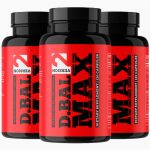Turmeric, a vibrant yellow-orange spice derived from the root of the Curcuma longa plant, has been a staple in traditional medicine and cooking for thousands of years. With roots in Ayurvedic and Chinese medicine, turmeric's historical use spans a variety of health conditions. In recent years, turmeric has grown in popularity, driven by growing interest in natural health remedies and the spice’s potential therapeutic benefits. This comprehensive guide delves into turmeric's myriad benefits, uses, and considerations, offering insights supported by modern science.
Turmeric is perhaps best known for its rich color and presence in curry powders, mustards, and other culinary delights. However, beyond its culinary applications, it possesses many potential health benefits. The primary active component in turmeric is curcumin, a polyphenol with powerful anti-inflammatory and antioxidant properties. Although curcumin constitutes a small percentage of turmeric (around 3-5%), it is credited with most of the health benefits attributed to the spice.
The Health Benefits of Turmeric
Anti-Inflammatory and Antioxidant Properties
Inflammation is a vital immune response that helps the body fight infections and heal injuries. However, chronic inflammation can contribute to various diseases, such as heart disease, cancer, and Alzheimer’s. Curcumin’s anti-inflammatory properties make it a potent agent in combating chronic inflammation. It works by inhibiting molecules that play a critical role in inflammation, such as nuclear factor kappa B (NF-κB), which travels into the nuclei of cells and activates inflammation-related genes. By suppressing these molecules, curcumin helps reduce inflammation, offering potential relief for inflammatory bowel disease, arthritis, and pancreatitis.
In addition to its anti-inflammatory effects, curcumin is a powerful antioxidant. It neutralizes free radicals and stimulates the body’s antioxidant defenses. This dual action helps prevent cellular damage and reduces oxidative stress, linked to aging and many diseases. Studies indicate that curcumin can increase brain-derived neurotrophic factor (BDNF) levels, a protein associated with improved brain function and a lower risk of brain diseases.
Digestive Health
Turmeric has long been used to support digestive health. Curcumin stimulates the gallbladder to produce bile, which aids in the digestion of fats. This can be particularly beneficial for individuals suffering from indigestion or dyspepsia. The German Commission E, an authoritative body on herbal remedies, has approved turmeric for treating digestive and liver disorders. By enhancing bile production, turmeric helps facilitate smoother digestion and alleviates symptoms like bloating and gas.
Anti-Cancer Potential
Some of the most promising research on turmeric revolves around its potential role in cancer treatment and prevention. Studies suggest that curcumin can affect cancer growth and development in several ways. It has been shown to inhibit the growth of blood vessels in tumors (angiogenesis), reduce the spread of cancer (metastasis), and contribute to the death of cancerous cells (apoptosis). Laboratory studies on animals and cells have yielded encouraging results, particularly about colorectal, breast, and pancreatic cancers.
Curcumin’s efficacy as an anti-cancer agent is also thought to be enhanced when used with conventional treatments. For instance, a study combining curcumin with chemotherapy for bowel cancer found that the combined treatment was more effective than chemotherapy alone. This has led to increased interest in the potential of curcumin as an adjunct therapy in cancer treatment. However, further clinical trials in humans are necessary to understand its benefits and limitations fully.
Heart Health
Curcumin’s anti-inflammatory and antioxidant properties also extend to cardiovascular health. Chronic inflammation is a significant factor in heart disease, and by reducing inflammation, turmeric can help protect against heart-related conditions. Curcumin improves the endothelium's function and the blood vessels' lining. Poor endothelial function is a significant driver of heart disease, as it can lead to blood pressure regulation and blood clotting issues. Curcumin enhances endothelial function and supports the overall health of the cardiovascular system.
Cognitive Function
Emerging research suggests that curcumin may reduce the risk of neurodegenerative diseases such as Alzheimer’s. Alzheimer’s disease is associated with the buildup of amyloid plaques in the brain, and curcumin has been found to help clear these plaques. Additionally, its anti-inflammatory and antioxidant properties help reduce oxidative stress and inflammation in the brain, which are believed to contribute to cognitive decline. Curcumin's ability to increase BDNF levels further supports brain health and cognitive function.
Arthritis Relief
Given its potent anti-inflammatory effects, it is unsurprising that turmeric has been explored as a potential treatment for arthritis. Both osteoarthritis (OA) and rheumatoid arthritis (RA) involve inflammation of the joints, which can lead to pain, stiffness, and reduced mobility. Studies have shown that curcumin supplementation can improve arthritis symptoms and may be as effective as some anti-inflammatory drugs without the associated side effects. This makes turmeric attractive for individuals seeking natural alternatives for managing arthritis pain and inflammation.
Muscle Recovery
In sports, curcumin has garnered attention for its role in muscle rehabilitation. Athletes often experience muscle soreness and inflammation following intense workouts. Curcumin’s anti-inflammatory properties can help reduce muscle damage and accelerate recovery, making it a popular supplement among athletes. Researchers are actively studying its potential to aid in post-exercise recovery, with preliminary findings suggesting positive outcomes.
Usage and Dosage
Turmeric can be consumed in various forms, including fresh root, dried powder, extracts, and supplements. Cooking with turmeric is a common way to incorporate it into the diet, and it is a key ingredient in many traditional dishes, particularly in Indian cuisine. Turmeric can be added to soups, stews, rice dishes, and smoothies. It is also the star ingredient in the increasingly popular “golden milk” or turmeric latte, which combines turmeric with milk and other spices for a warming, health-boosting beverage.
However, it is essential to note that curcumin’s bioavailability (the rate at which a substance is absorbed into the bloodstream) is relatively low. To enhance absorption, it is often recommended to consume turmeric with black pepper, which contains piperine, a natural substance that increases curcumin absorption by up to 2,000%. Additionally, consuming turmeric with a fat source, such as coconut oil or avocado, can help improve curcumin absorption.
Supplements are available in various forms, including capsules, tablets, and tinctures, for those seeking higher doses of curcumin for medicinal purposes. These supplements often contain higher concentrations of curcumin and are sometimes formulated with piperine or other absorption enhancers. It is advisable to follow the dosage instructions provided on the supplement packaging and consult with a healthcare professional before starting any new supplement regimen, especially for individuals with existing health conditions or other medications.
Safety and Side Effects
Turmeric is generally considered safe when consumed in culinary amounts. However, high doses or long-term use of curcumin supplements can lead to side effects. Common side effects include digestive issues such as nausea, diarrhea, and stomach pain. Some individuals may also experience skin or allergic reactions when taking turmeric supplements.
It is crucial to exercise caution when considering turmeric or curcumin for medicinal purposes. Specific individuals should avoid high doses, including those with gallbladder problems, bleeding disorders, or diabetes. Moreover, turmeric and curcumin may interact with certain medications, such as blood thinners and diabetes drugs, potentially leading to adverse effects. Therefore, consulting a healthcare provider before incorporating turmeric supplements into the diet is essential.
Additionally, concerns have been raised about the purity and safety of turmeric supplements. Some products may contain contaminants or undisclosed additives, posing health risks. As such, it is recommended to choose high-quality supplements from reputable manufacturers and to verify that they have been tested for purity and potency.
Turmeric in Cooking Vs. Supplements
While turmeric supplements offer a convenient way to obtain higher doses of curcumin, some experts suggest that the best use of turmeric is in its whole form as a dietary spice. Fresh turmeric root or powder can be easily incorporated into daily meals, providing curcumin and other beneficial compounds in the whole root. This approach aligns with traditional uses and allows individuals to enjoy turmeric's culinary and health benefits without the risks associated with high-dose supplements.
Conclusion
Turmeric, a golden spice with a rich history and remarkable health benefits, continues to capture the attention of researchers and health enthusiasts worldwide. From its anti-inflammatory and antioxidant properties to its potential role in cancer prevention and treatment, turmeric offers a multifaceted approach to health and wellness. Whether used in cooking or as a supplement, turmeric provides a natural means to support various aspects of health, from digestion and heart health to cognitive function and muscle recovery.
Individuals considering turmeric for its therapeutic benefits must approach its use mindfully, paying attention to dosage, potential side effects, and interactions with other medications. Consulting a healthcare professional can help ensure safe and effective use.
Incorporating turmeric into a balanced diet through culinary use is a practical and enjoyable way to reap its benefits. With its vibrant color and distinctive flavor, turmeric enhances the taste of dishes and contributes to overall health and well-being.
Turmeric stands out as a versatile and powerful ally in the quest for natural health solutions, rooted in tradition and backed by modern science. Whether for its potential medicinal properties or its culinary charm, turmeric continues to shine as a golden spice with far-reaching benefits.









